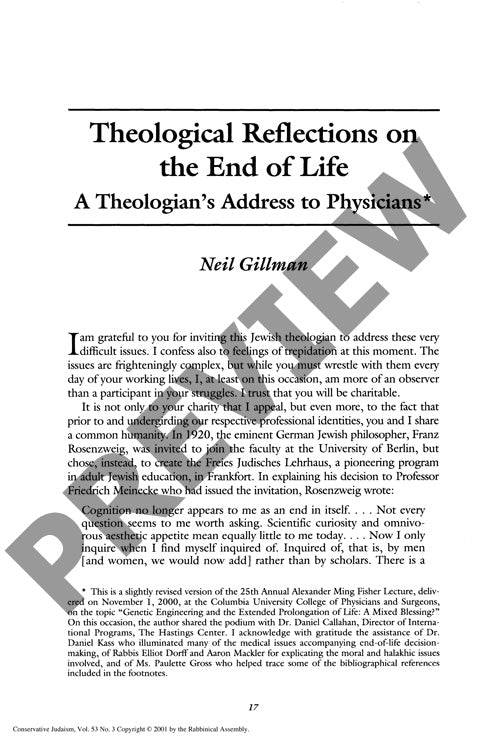Theological Reflections on the End of Li
Couldn't load pickup availability
Abstract This study presents a theological examination of end-of-life decision-making from a Jewish perspective, delivered as an address to physicians at Columbia University College of Physicians and Surgeons. The methodology employs theological reflection and textual analysis, drawing upon rabbinic literature, Jewish law (halakha), and philosophical discourse to articulate a distinctively Jewish approach to medical ethics at life's end. The analysis centers on Judaism's foundational belief in a "living God" who creates and sustains life, establishing the preservation of human life as a cardinal religious obligation (mitzvah). The study systematically contrasts Jewish theological perspectives with secular medical approaches, particularly critiquing naturalistic views that accept death as merely part of ecological cycles. Key findings emphasize Judaism's rejection of death idealization and its affirmation of life's absolute preciousness, viewing medical healing as divine partnership. The research examines contemporary halakhic positions on passive versus active euthanasia, treatment withdrawal, and quality-of-life considerations, noting consensus against physician-assisted suicide while acknowledging divergent views on withholding versus withdrawing treatment. The study concludes by advocating for "hope against hope" as a theologically grounded response that transcends scientific positivism while maintaining respect for medical expertise. This theological framework offers healthcare practitioners an additional value dimension for clinical decision-making that prioritizes human dignity and the sanctity of life within Jewish religious tradition.

More Information
-
Physical Description
-
Publication Information
Published 2001
ISBN
-
Publication Credits
Neil Gillman

